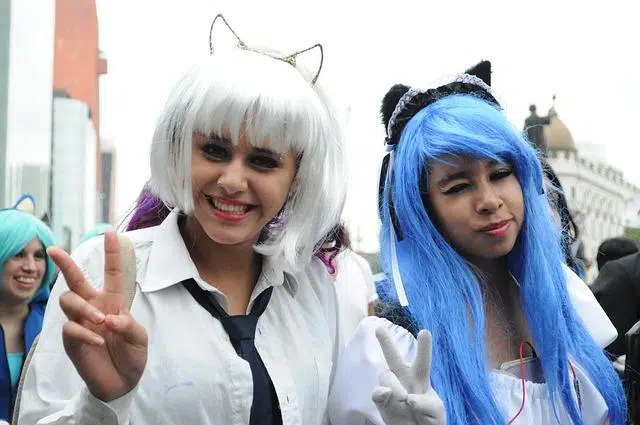
An admirer of Japanese culture is known as an otaku.
Otaku is a concept of the Japanese language that is not part of the dictionary of the Royal Spanish Academy (RAE) . In Japan, an otaku is someone who is fascinated or attracted to a certain topic .
Going beyond what happens within this Asian nation, the notion of otaku is used to name the person who admires certain elements of Japanese culture , such as the comics known as manga or the cartoons called anime .
In the Western world, therefore, an otaku is an individual who likes various features of Japanese culture. For example. «Tomorrow the otakus of the city will gather in the square to have a party» , «My son says he is an otaku: he loves animated productions from Japan» , «The contest will choose the best-dressed otaku» .
Otakus as an urban tribe
Sometimes, the term otaku is used to name an urban tribe that encompasses those who are true fans of anime, manga, cosplay, etc. In these cases, most of the otaku's activities revolve around Japanese culture, and they even often dress up as their favorite characters.
Otakus, therefore, can be linked to other urban tribes, such as punks or darks . These are dissimilar groups (some more ideological than others) but they share the particularity of bringing together adolescents and young people who have a certain interest in common and who develop a sense of belonging to the group. In this way, all members of the tribe dress similarly, share a slang , etc.

Otakus are often interested in cosplay : the representation of characters through costumes.
Demands and requirements
Otaku culture is characterized by its high level of demand and its little flexibility: at the extreme most dominated by fan communities, there are a series of unbreakable rules that turn divergent people into less intelligent people and unfit to be considered otaku; For example, it is not acceptable to watch an anime series dubbed, but only the use of subtitles is acceptable. While it is true that dubbing causes a large percentage of the original content to be lost, subtitles do not allow the experience to be preserved intact and, furthermore, everyone should be able to choose how to enjoy their favorite programs.
The Japanese stand out for being generally disciplined and very perfectionist people, and these qualities are usually perceived in most otakus. An otaku's dedication to his or her favorite activities and content is generally greater than that of a person who is interested in other cultures. Japanese cartoons and comics generate a kind of addiction in their followers, a relationship that transcends the limits of fiction and reality.
An otaku is expected to enjoy various aspects of Japanese culture, in addition to the aforementioned artistic creations. Among their common activities can be the acquisition of food items from Japan in specialized stores , the purchase of utensils and clothing such as chopsticks and hats with ears, meetings with other otakus to exchange all kinds of information about their favorite country and the cosplay.
Otakus and cosplay
Cosplay (contraction of the English words costume play , which can be translated as costume play ) is a fashion that invites its participants to dress up as their favorite characters , or to represent different ideas through their clothing.
There are cosplay competitions in several countries that are very attractive and challenging: making the costumes and accessories can take a lot of time and dedication, although this never makes a true otaku hesitate. Among the most important competitions are the World Cosplay Summit, in Japan, and the Yamato Cosplay Cup, in Brazil.
